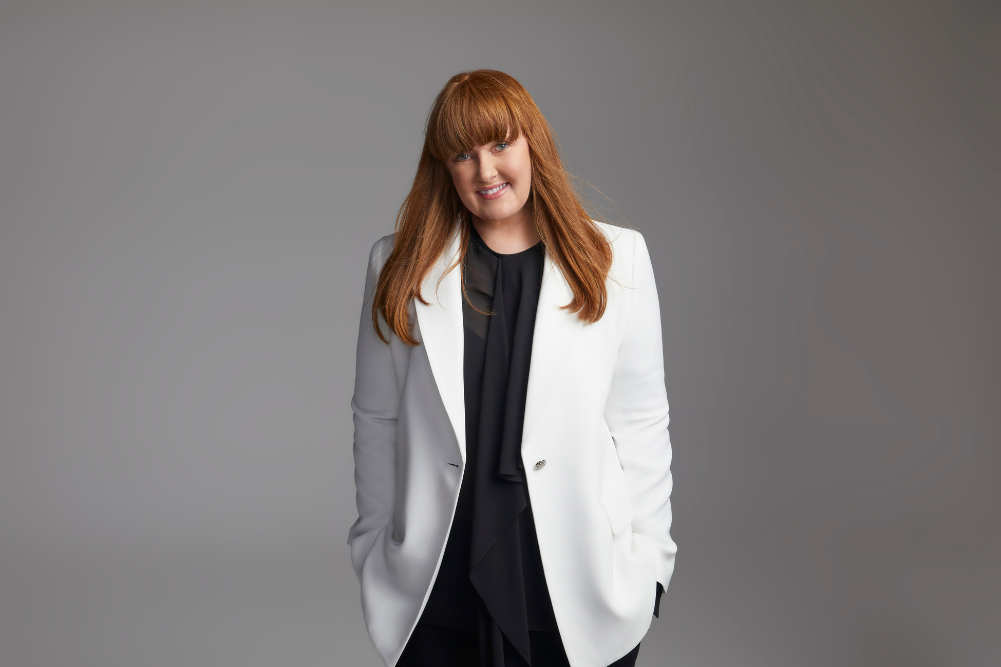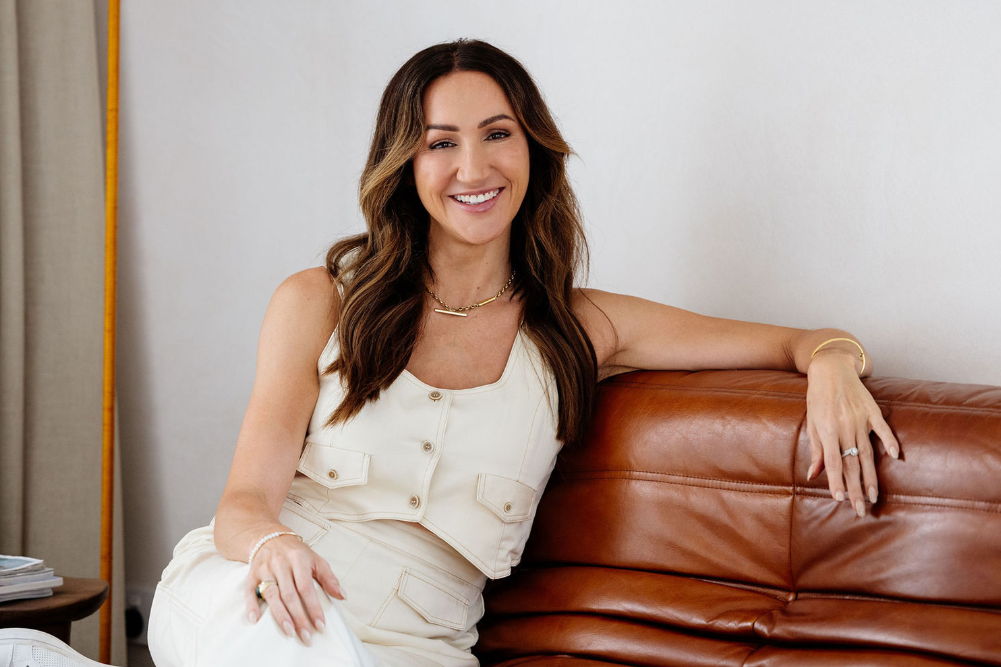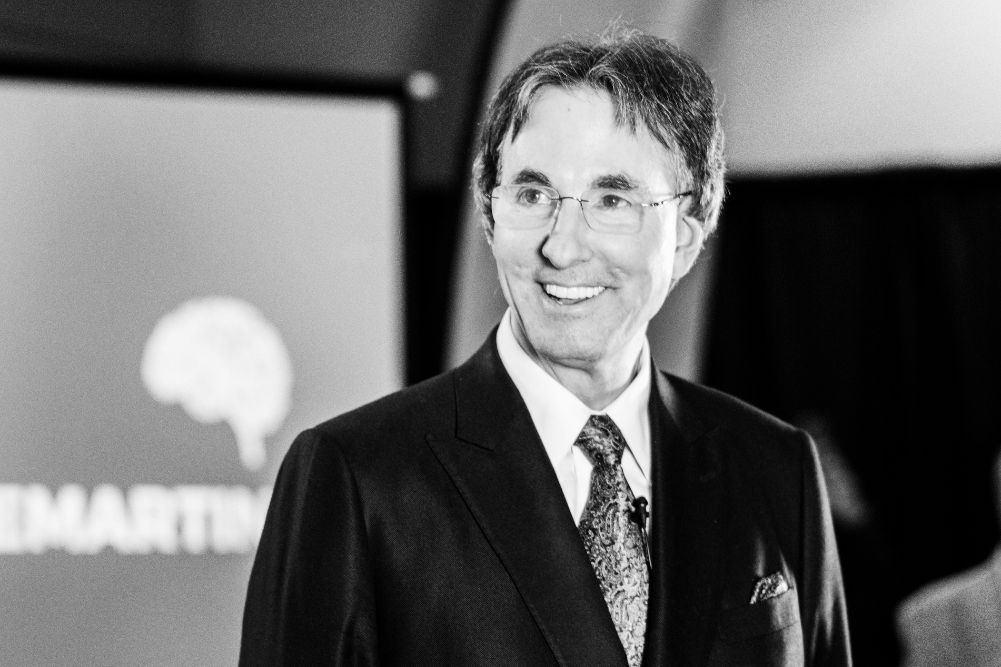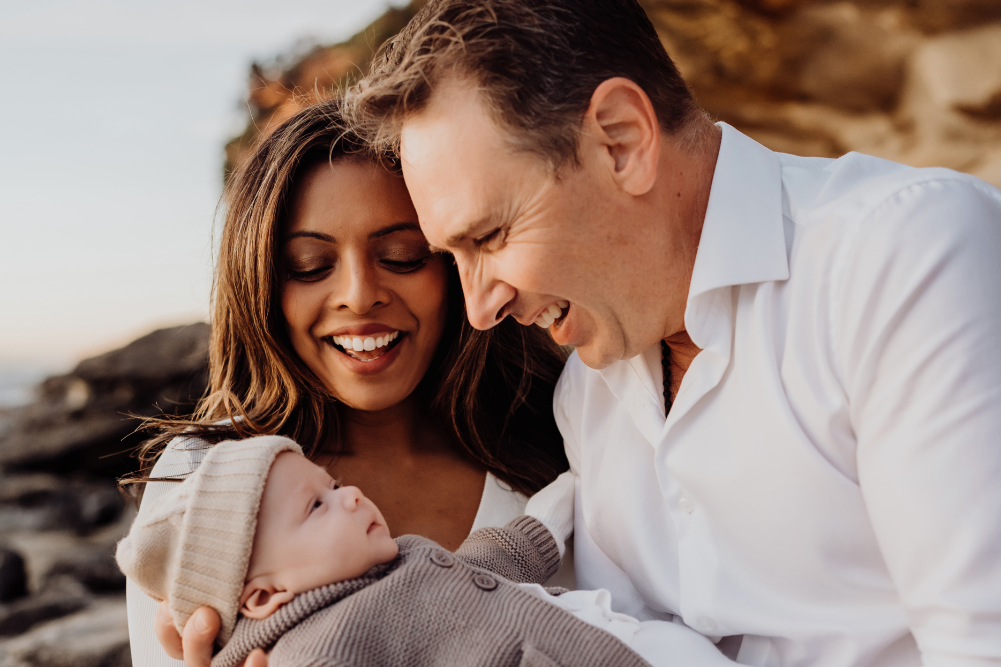Inspiring curiosity with Natalie Kyriacou
When Natalie Kyriacou first entered the business world, she was frequently dismissed — working in the environmental sector was commonly viewed as “fluff” work. Now a multi-award-winning founder and CEO, she is determined to help educate and empower young people about wildlife conservation.
Words by: Simone Ziaziaris
For several months, Natalie Kyriacou woke up in stifling heat and humidity each day. She was living in a small guest house backing onto one of the few remaining tracks of protected rainforest in Sabah, Malaysian Borneo.
A journalism student at the time, Kyriacou travelled to the Bornean jungle to work on an orangutan rehabilitation project, hoping to learn more about the challenges facing some of the world’s most iconic species and to write about the impact palm oil was having on wildlife in the region.
Each day, she bottle-fed infant orangutans, sourced food and enrichment for local wildlife, taught juvenile orangutans to climb trees and monitored wild nest populations, all while wrapping up the final semester of her university degree. It was a life-changing experience, but not one Kyriacou necessarily recommends today.
While she feels very fortunate to have had such a unique experience, she believes handling wildlife isn’t something anybody should strive towards. “It’s an indicator that we, as humanity, have meddled too much,” she says. “There is nothing more beautiful than hearing and witnessing truly wild wildlife thriving in their natural habitats, without human interference.”
It’s a belief that stems from Kyriacou’s experience in Borneo. She remembers the bittersweet moment when she was standing on the edge of the jungle talking to a local ranger when something grasped her hand. It was a young orangutan gazing up, gently holding onto her. “While I selfishly cherished the experience, I also knew that this was not the behaviour of a healthy, thriving and wild orangutan,” Kyriacou says. “This orangutan was quite thin and was, uncharacteristically and unnaturally, standing on his two hind legs like a human.”
The orangutan’s home had been destroyed and his mother had been killed to make way for palm oil plantations, leaving him an orphan. Despite the best efforts of the centre to rehabilitate him back to the wild, Kyriacou was told that this was a “rehabilitation failure”, having become too accustomed to human interference.
“This orangutan, to me, was symbolic of the crimes against nature that we have committed and continue to commit today,” she says. “This experience helped me better understand the delicate and complex balance between wildlife, the environment and human survival, and I think it was that moment that most probably set me on my current path.”
It was her experience in Borneo and her travels in Sri Lanka, where she met a woman who had dedicated her life to preventing street dog overpopulation, that helped influence Kyriacou to make positive change.
“I met people that truly lived with nature, not against it. People that understood the delicate balance of natural environments; who could identify thousands of species of plants and animals from a single glance,” she says. “I learned very early in life that to surround yourself with a diversity of people and experiences is a true privilege and an absolute necessity for learning, progress and growth.”
Putting learnings into practice
After returning from her travels in 2013, Kyriacou, then a 23-year-old, noticed a growing focus on mobile gaming apps and technologies targeting children. At the same time, she also recognised a complete ignorance when it came to some of the major environmental issues occurring around the world.
“I thought, I wonder if there is a way that we can connect this desire for kids to engage in new technology and mobile game apps, like Angry Birds, with really important global environmental crises that are happening around the world,” she explains.
With many games focusing on destruction and demolition or glamourising animals as pets and wildlife in captivity, Kyriacou wanted to revolutionise the way children connect with wildlife and environmental and animal welfare issues. She started formulating the app World of the Wild, that would allow children to build their own world, learn about different species, rescue wildlife and connect them with charities.
Kyriacou decided to focus on children because they are going to be the generation most impacted by the devastating impacts of wildlife and environmental degradation. As such, she made sure children were part of the process, providing input when it came to the game’s unique facts, quizzes and learning materials.
“It was about co-creating with kids with the knowledge that they can be the champions of their own education, and that they provide a huge amount of insight and wisdom that we as I guess, older generations, fail to tap into it and fail to recognise.
“I think it’s just a core tenet of diversity and inclusion and making sure that we are really considering a wide range of voices — and kids have such a powerful voice and such powerful perspectives. People listen when they talk.”
In addition to input from children, Kyriacou says some of the game’s animals are based on the quirky characters she came across during her time travelling — like Miko, the orangutan in Borneo who stole her underwear.
Creating World of the Wild wasn’t all fun and games. Building an app meant building a business. My Green World was launched in 2013 as an education program. It marked the start of several long and gruelling months for Kyriacou, who was also working and studying a masters in international relations.
“Building an app at the time when it wasn’t as common as it is today was incredibly challenging,” she says.
Working on the side wasn’t enough to cover the cost of the app, so Kyriacou moved back home with her parents in Melbourne and sold her car, putting everything she had into building the app and My Green World.
“I worked incessantly, had no balance and was completely and utterly emotionally and physically invested in the company and app,” she says. “It consumed me, but I pushed forward because I truly believed it would make a positive difference in the world.”
Overcoming fear of failure
Kyriacou was frequently told that personally investing in the environment was a big mistake. Some people asked when she would get “a real job” and “quit the tree-hugging”.
Kyriacou says pervasive diminishment of environmental work was not uncommon. It was further amplified for women in the space running environmental initiatives. Many people saw environmental work as “fluff” and for tree huggers who didn’t know how the real world worked.
“I was frequently labelled ‘that environmental girl’ and told there is ‘no money in environment’. It felt belittling and demeaning. I am a woman, but it is clear I wasn’t seen as being ready to do business with the adults.”
Over the years, there were also instances when Kyriacou’s work was attributed to her boyfriend. “People couldn’t fathom that a woman would be running this business with her boyfriend by her side as support,” she says.
Then there was the more blatant discrimination: women simply weren’t being invested in. “Women didn’t win pitch start-up competitions, they didn’t speak at start-up events, they weren’t profiled as ‘leading entrepreneurs’ and they weren’t invited to start-up events. And it wasn’t because of lack of talent or availability. It was simply that we were continuously overlooked and sidelined.”
Looking back, the widespread discrimination she experienced had a big impact. As someone who comes across as very confident, she says she would often be riddled with insecurity.
She took comfort in knowing that her friends and family were supportive, rallying behind her and her business and becoming environmental champions. “I told myself that the worst that could happen is that I fail in business, but at least I would have hopefully inspired curiosity for wildlife and the environment among my friends and family.”
Kyriacou found mentors and role models who could offer a diversity of perspectives. She leaned on them for guidance — learning, listening and sifting through advice that was useful for her and her organisation. “All I can say now is, I made many mistakes. But investing my time, energy and passion into the environment was the best decision of my life.”
Pushing through barriers
Kyriacou’s determination to make change and encourage positive youth participation in wildlife and environmental conservation has seen her thrive. Not only is she the CEO of My Green World, a board adviser at the Women Leaders Institute and the environmental and social growth driver at PwC, but she advises world leaders on environmental and social policy.
And her work in the environmental space hasn’t gone unnoticed. In 2018, she was named part of the Forbes 30 Under 30 list — something Kyriacou says she didn’t see coming. She has also received the Medal of the Order of Australia, was a finalist for the UNEP Young Champion of the Earth Prize and is a Pro Bono Impact 25 Award recipient.
Kyriacou says it was her passion and engaging a wide range of people for advice and partnership that has seen the World of the Wild app succeed since it came to fruition in 2014. “If you go to somebody with this real passion and wanting to make a difference, people stand behind that, and especially with new start-ups,” she says. “It’s not so much about the entity or the organisation, it’s about the person behind it, and so I think that a lot of people were, thankfully, interested in really helping me on my journey.”
At its peak, the app had just over 100,000 unique users from all around the world, including countries like China, Australia and South Africa, and 18 charity partners from the Sea Turtle Conservancy to Helping Rhinos, California World Center and Borneo Orangutan Survival Australia (BOSA).
While World of the Wild app is currently in a redevelopment phase, Kyriacou isn’t pulling up the brakes. Her company My Green World continues to create inclusive and fun programs to engage wildlife environmental conservation education. Among them is a program called Kids’ Corner, a digital classroom for children and teachers that offers a range of curriculum-aligned learning programs. Covering about 17 topics related to wildlife and the environment, it includes videos, infographics, articles, booklets, tapes and home programs that aim to supplement childhood learning outside and inside of school.
“Depending on the school, I think for the most part schools are racing to keep up with kids,” she says. “They [children] have a fairly strong knowledge of wildlife and environmental issues … so I think schools need to be bolstering these interests in a really solid and accessible education that will provide career pathways.
“I think where there’s room to grow is providing the education for kids to be able to truly pursue careers in environmental science, education and consulting, and take it a bit broader than the environmentalism in your backyard.
“There’s not always just right and wrong, good and bad. We owe it to ourselves and others to comprehensively explore both sides of an argument and do it with curiosity and kindness,” Kyriacou says. When doing so, you never know what you might find.








